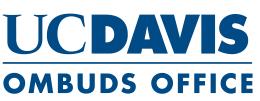Manager update: AFSCME bargaining status
As part of the University of California system, UC Davis Health is committed to good faith negotiations, fair wages, excellent benefits, and compliance with the collective bargaining process. This allows us to recognize and reward employees for providing exceptional care and support services to our patients, who are at the center of everything we do.
UC Davis Health continues to attract increasing numbers of American Federation of State, County, and Municipal Employees (AFSCME). Over the past four years, we’ve experienced a 26.6% increase (over 1,000 hires) in AFSCME employee numbers – 3,685 in 2020; 4,047 in 2021; 4,366 in 2022; and 4,666 in 2023. Separations have remained fairly consistent over the last four years, and actually decreased in the last three quarters of 2023.
Bargaining began in January 2024 with the EX and SX units of AFSCME. Please refer to this webpage for the latest information about the status of negotiations, as well as the UCOP website.
It’s important to note that negotiations with unions for full contracts of our systemwide bargaining units are conducted by the University of California Office of the President, not local campuses or health systems.
Updates
- 07/16 UC and AFSCME meet on July 11-12 to continue negotiations for Patient Care Technical and Service employees (Link)
- 06/18 UC offers significant financial proposals to AFSCME for patient care technical and service employees (Link)
- 05/21 Negotiations on May 20-21 between UC and AFSCME for Patient Care Technical and Service employees (PDF)
- 05/08 UC contract negotiations with AFSCME for Patient Care Technical and Service employees continue (PDF)
- 03/27 UC and AFSCME meet March 25-26 for Patient Care Technical and Service employee contracts (PDF)
- 03/11 UC and AFSCME continue negotiations for Patient Care Technical and Service employees (PDF)
- 02/22 UC proposes significant multi-year pay raises for Patient Care Technical and Service employees (PDF)
- 01/25 Negotiations begin for new Patient Care Technical and Service contracts (PDF)
- 01/31 Highlights of first bargaining session (PDF)
Important Dates
Proposed Bargaining Dates Per Location
Resources

The Academic and Staff Assistance Program (ASAP) offers confidential, cost-free assessment, intervention, consultation and referral services to all UC Davis and UC Davis Health faculty, staff and their immediate families.

Employee Relations provides employees and supervisors with the resolutions of work-related issues, while Labor Relations handles labor issues such as collective bargaining, grievance processes, changes in labor law and more.

The UC Davis Ombuds Office is a confidential, independent, impartial, and informal problem-solving and conflict management resource for all members of the UC Davis, UC Davis Health, and UC ANR communities

- The Principles of Community (link) embody our commitment to create an inclusive, supportive, and intellectually vibrant community that recognizes and values the dignity inherent in all of us.
- The UC Statement of Ethical Values (PDF) contains 12 standards that apply to all members of the UC community and bolster our commitment to integrity, excellence, accountability and respect.
- The UC Davis Health Code of Conduct (PDF) is made up of 14 standards, each of which addresses an area that is known to be at risk for compliance violations.

